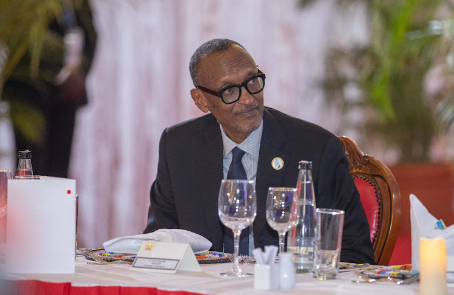Rwanda’s President Paul Kagame has set a new record by winning Monday’s elections with over 99% of the vote, surpassing his previous record of 98.63% in the 2017 election. His earlier results were 93% in 2010 and 95% in 2003.
Critics attribute the overwhelming majorities to Kagame’s autocratic style of governance, while supporters cite his popularity and the stability and economic growth achieved under his leadership. Kagame, a former rebel leader, came to power in 1994 after ending a genocide that claimed around 800,000 lives.
The electoral commission disqualified at least three presidential candidates, including some of Kagame’s most vocal critics, allowing only two challengers: Frank Habineza of the Democratic Green Party and independent Philippe Mpayimana.
They received 0.53% and 0.32% of the vote, respectively, a decline from their combined vote total of over 1% in the 2017 election. Voter turnout was reported at 98%.
Human Rights Watch’s Clementine de Montjoye suggested that Kagame’s record-breaking result highlights the limited political space for opposition in Rwanda. However, Uganda’s President Yoweri Museveni praised Kagame’s re-election as a sign of Rwandans’ trust in his leadership.
Despite ongoing challenges with youth unemployment, Rwanda remains one of Africa’s fastest-growing economies. During his campaign, Kagame promised to safeguard Rwanda from external threats, particularly amid tensions with the Democratic Republic of Congo and Burundi.



